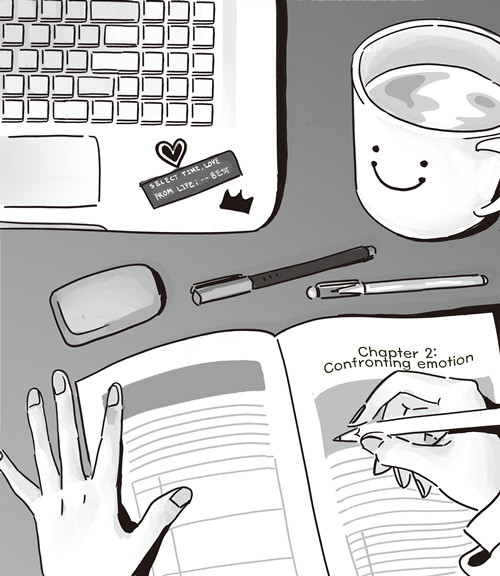
It has been a year since online classes have become the new norm. Ewha Centennial Library now operates with one fourth of its original seats. ECC also has more than half of its seats removed from usage. As it has become harder for students to study in public for long periods of time, studying has become strictly private that requires more self-motivation.
To prevent students from procrastinating, Ewha Student Counseling Center (ESCC) began the Procrastination Group Therapy program. Its purpose is to aid students experiencing difficulty in being diligent. Amid the pandemic, the program opened through Zoom. For 2021, its first semester began in April, and the summer program is currently gathering members.
On day one, all participants were given a notebook for the therapy. The counseling was held for three hours per week throughout the four week schedule. Participants stayed anonymous and called each other by nicknames. Nearly all participants had their cameras on which allowed the session to be as interactive as possible to an offline therapy.
Throughout the entire program, questions mainly circled around finding out the source of emotion that leads to procrastination. Verbalizing the situation was a way to confront the subject. Accordingly, the responses were intimate, but students participated without much hesitation. It did nottake a few seconds until students volunteered to share personal stories in the encouraging environment. The counselors also participated in the therapy with nicknames, sharing their stories as well.
Mini tests were included as part of the schedule. One defined how much procrastination an individual is undergoing in scores. The other segregated types of procrastinators into groups such as the defiant, the dreamer and the perfectionist. Methods suggested to resolve procrastination differed per type.
Every week, students were given different tasks. For example, tasks relevant to time management were given. Students attempted to measure the amount of time it takes per job, then challenged themselves to set a better version of one’s plans according to the time they measured beforehand.
Free discussions took place in the Zoom meeting as well. Starting from what each students felt about the given tasks, students were given chance to express thoughts in between the program.
The students agreed that the therapy did not bring a drastic difference to one’s lifestyle. However, it reduced loneliness and has helped the students nurture self-esteem setting themselves free from the cycle of negative thoughts that lead to more procrastination.

